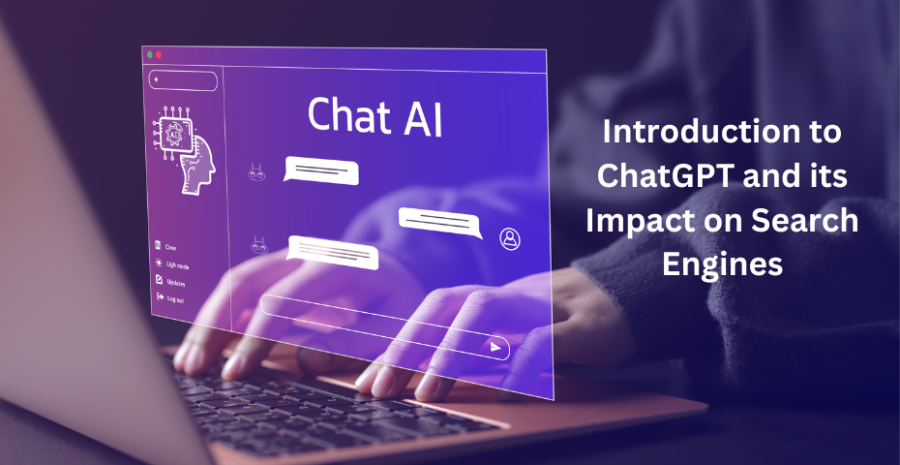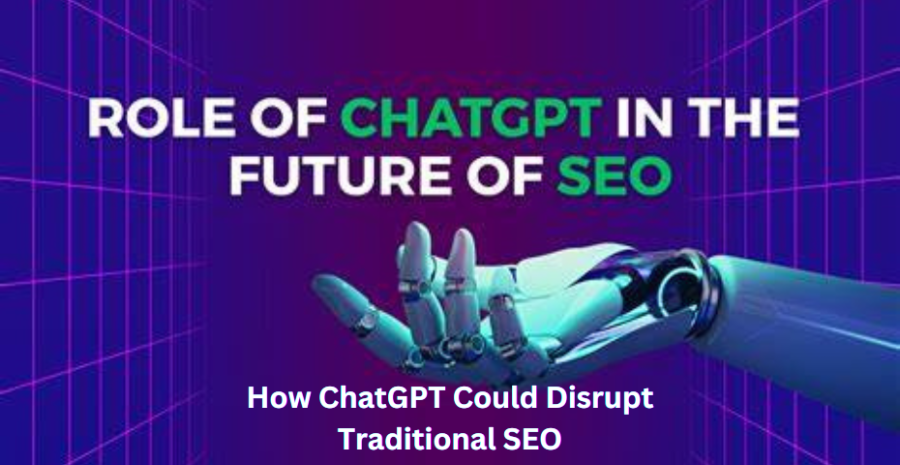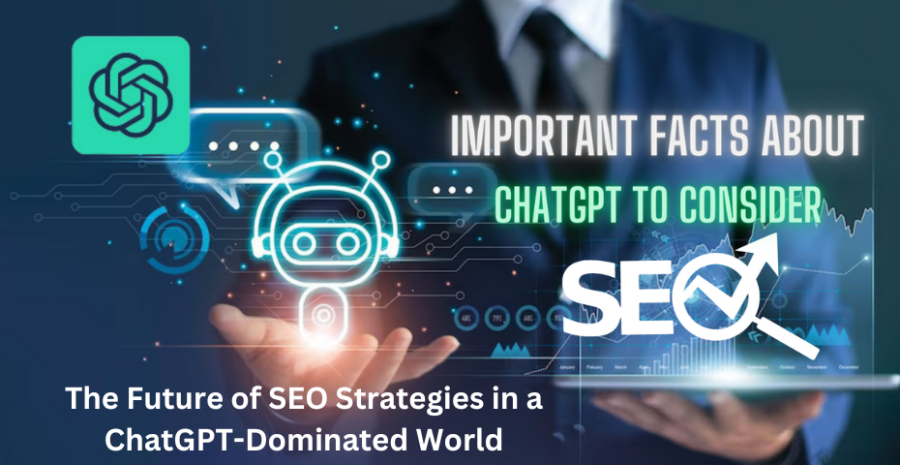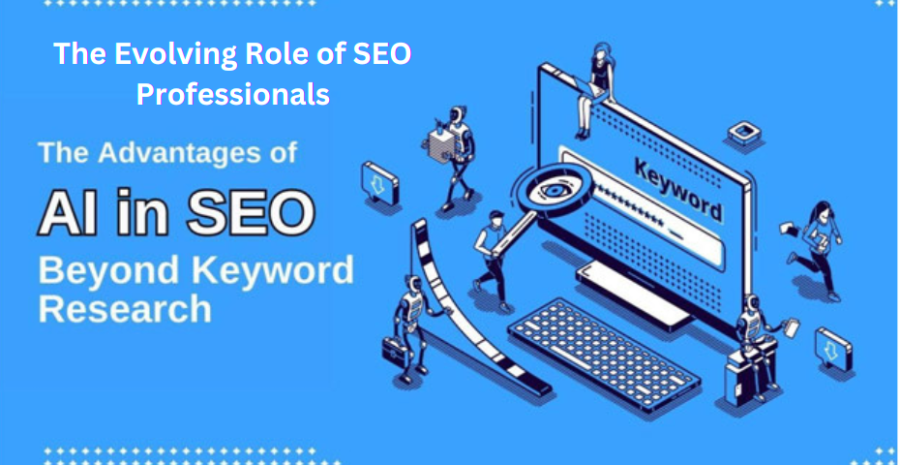
.png)
Search engines have long been the cornerstone of the internet, guiding users to the information they seek. For over two decades, SEO (Search Engine Optimization) has been a critical strategy for businesses and content creators to ensure visibility and relevance in the vast digital landscape. However, with the advent of advanced AI like ChatGPT, the traditional search engine paradigm is facing potential disruption.
This blog explores the future of SEO in a scenario where ChatGPT replaces conventional search engines, delving into its implications, challenges, and opportunities.

ChatGPT is an advanced AI language model developed by OpenAI, designed to understand and generate human-like text based on the input it receives. Its capabilities extend beyond simple question-and-answer interactions to generating comprehensive articles, engaging in meaningful conversations, and even providing personalized recommendations.
Search engines like Google, Bing, and Yahoo have revolutionized how we access information. Their algorithms rank websites based on relevance, quality, and user engagement, shaping the landscape of online content. SEO practices have evolved to keep pace with these algorithms, focusing on keyword optimization, backlink building, and user experience enhancement.
In recent years, AI and machine learning have become integral to search engine algorithms, enhancing their ability to understand user intent and deliver more accurate results. However, ChatGPT represents a significant leap forward, with the potential to directly interact with users and provide instant, tailored responses without the need for traditional search engine results pages (SERPs).

One of the most significant changes ChatGPT could bring is the shift from traditional SERPs to direct answers. Instead of presenting a list of links for users to choose from, ChatGPT can provide precise, contextually relevant answers in real time. This shift would diminish the need for users to visit multiple websites, fundamentally altering the landscape of web traffic and SEO strategies.
ChatGPT's ability to personalize responses based on individual user preferences and history offers a more tailored and engaging experience. This personalized approach could reduce the effectiveness of generic SEO strategies, pushing businesses to develop more customized and user-centric content to stay relevant.
SEO has traditionally relied on keyword optimization. However, ChatGPT's advanced NLP capabilities mean it can understand and respond to more nuanced queries. This development necessitates a shift from keyword-centric strategies to content that emphasizes context, relevance, and conversational language.

With ChatGPT prioritizing direct and relevant answers, the emphasis will shift even more towards high-quality content that directly addresses user queries. Content creators will need to focus on producing in-depth, authoritative, and engaging material that adds genuine value to users.
Semantic SEO, which focuses on the meaning behind search queries rather than just keywords, will become increasingly important. Understanding user intent and context will be crucial for optimizing content to align with how ChatGPT interprets and responds to questions.
User experience has always been a key factor in SEO, but its importance will be amplified in a ChatGPT-centric environment. Websites will need to offer seamless, intuitive, and engaging experiences to complement the direct answers provided by ChatGPT, encouraging users to explore further.
As ChatGPT can easily integrate with voice assistants, optimizing for voice search will become more critical. This shift will require content to be more conversational and aligned with how people naturally speak, rather than how they type.
Local SEO will gain new dimensions with ChatGPT's ability to provide hyper-local recommendations and answers. Businesses will need to ensure their local listings are accurate, and create content that resonates with local audiences to capture the attention of users seeking nearby services or information.

Traditional SEO metrics, such as page views and click-through rates, may become less relevant in a ChatGPT-dominated world. Businesses will need to adapt to new performance indicators that reflect user engagement and satisfaction with AI-driven interactions.
With ChatGPT handling many straightforward queries, businesses have the opportunity to create more engaging and interactive content that goes beyond basic information. Interactive tools, multimedia content, and immersive experiences will become essential for capturing and retaining user interest.
The rise of AI-driven content creation tools, including ChatGPT, presents an opportunity for businesses to streamline their content production processes. By leveraging AI, businesses can produce high-quality content more efficiently, allowing them to focus on creativity and strategic planning.
In a landscape where users rely on AI for answers, establishing trust and authority will be paramount. Businesses and content creators will need to demonstrate their expertise and reliability through transparent, accurate, and well-researched content to gain the confidence of users and AI systems alike.

With AI playing a central role in information dissemination, the importance of data-driven insights will increase. Businesses will need to harness analytics to understand user behavior, preferences, and trends to tailor their content and strategies effectively.
As AI systems like ChatGPT gather and process vast amounts of user data, privacy concerns will inevitably arise. Ensuring robust data protection measures and transparent data usage policies will be critical for maintaining user trust and complying with regulatory requirements.

SEO professionals will need to evolve from technical experts to strategic advisors, guiding businesses in navigating the complexities of AI-driven search and content ecosystems. Their expertise will be crucial in developing holistic strategies that encompass content, user experience, and AI optimization.
The rapid pace of technological advancements will necessitate continuous learning and adaptation for SEO professionals. Staying abreast of the latest developments in AI, NLP, and search technologies will be essential for maintaining a competitive edge.
The potential dominance of ChatGPT over traditional search engines represents both a challenge and an opportunity for the future of SEO. While the disruption may render some conventional strategies obsolete, it also paves the way for innovative approaches that prioritize quality, relevance, and user engagement.
By embracing these changes and adapting to the evolving landscape, businesses and SEO professionals can thrive in a world where AI-driven interactions redefine how we access and consume information.
As we look to the future, one thing is certain: the principles of SEO—understanding user needs, creating valuable content, and optimizing for visibility—will remain foundational. However, the methods and tools we use to achieve these goals will continue to evolve, driven by the transformative power of AI like ChatGPT.
The journey ahead promises to be an exciting exploration of new possibilities, reshaping the digital landscape and the way we connect with information.
(1).jpg)
About: Andries vanTonder (65)
45 years selfemployed
He is a Serial Entrepreneur, an Enthusiastic supporter of Blockchain Technology and a Cryptocurrency Investor
Find me: Markethive Profile Page | My Twitter Account | My Instagram Acount | and my Facebook Profile.
